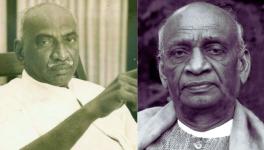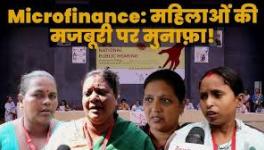Will the States Lose the Power to Create Their Own OBC List?
The debate in the Rajya Sabha over ‘The Constitutional (123rd Amendment) Bill, 2017’ that provides constitutional status to the National Commission for Backward Classes (NCBC), saw some exchange of words between the treasury and opposition benches about who was more committed to the Backward Classes. The Bill was passed by the Lok Sabha and sent to the Rajya Sabha. The issue started when the chair P.J. Kurian asked the members if they were going ahead with the amendments that they suggested, during the voting on the said Bill. Digvijaya Singh, B.K. Hariprasad and Hussain Dalwai of the Congress had moved amendments to the Bill to have 5 members to the Commission and those 5 should be chosen from the Other Backward Classes with at least one woman and one minority member, against the current proposal of 3 members. To this the Minister in-charge Thaawar Chand Gehlot assured the house that these suggestions can be incorporated while framing the rules. This was negated by Mr Digvijaya Singh stating that this government could not be trusted as they do “Jumla Politics”. This amendment was put to vote and the house passed it by 74 to 52 votes.
The existing National Commission for Backward Classes came into being with an Act of Parliament in 1993. The Commission could only examine the demand to include or exclude “any class of citizens as a backward class in the lists.” The BC Commission does not have the constitutional backing like the National SC and ST Commissions. When the Bill gets passed and receives the President’s assent it would have constitutional backing and have the powers of a civil court. The Commission once in place can also look into the grievances of the OBCs. It is mandated to “investigate and monitor all matters relating to the safeguards provided for the socially and educationally backward classes under this Constitution or under any other law for the time being in force or under any order of the Government and to evaluate the working of such safeguards.”
That is not the only mandate of this constitutional amendment, the most contentious part of the Bill according to the opposition benches is that it takes away the powers of the state legislature to decide who would be included or excluded from the OBC list at the state level. M.V. Rajeev Gowda, M P, says,
“This was necessitated since a combined reading of Article 342A and 366(26c) makes it clear that once the 123rd amendment passes, only the Union government can determine whether a caste is socially and educationally backward or not. There is no language in the Bill to ensure that the president is bound to take into account the opinion of the governor.”
Speaking to Newsclick on the issue, Prof. Kancha Ilaiah said, “The Central and existing State Backward Classes Commissions should function independently and their mandates are different. States’ rights should not be taken away.”
Does that mean the states which till date were legislating their state OBC lists would cease to exist if someone goes the court stating the states do not have the power to do so with the 123rd Constitutional Amendment?
Another aspect that needs to be looked at is that of the composition of the Commission. The current NCBC Act of 1993 has a clear mandate that out of the 5 members: a retired High Court or Supreme Court Judge should be the Chairperson, a social scientist, two members who have “special knowledge” about the Backward Classes and a member secretary. The proposed Bill does not mention the criterion for the members of the Commission. If this exists it would be meet the fate of SC ST Commissions which do not have such a mandate like the existing NCBC.
Disclaimer: The views expressed here are the author's personal views, and do not necessarily represent the views of Newsclick.
Get the latest reports & analysis with people's perspective on Protests, movements & deep analytical videos, discussions of the current affairs in your Telegram app. Subscribe to NewsClick's Telegram channel & get Real-Time updates on stories, as they get published on our website.























